Hello, readers! Imagine this: you pour your soul into solving a complex task, submit your code for review... and get a scathing comment like, "This solution doesn't scale," "Too complicated," or "Where's the error handling for X?" along with a ton of edits. Do you recognize this sinking feeling? Negative feedback is an unavoidable part of the job. But what if it could become raw material for professional growth instead of a stress trigger? Let's explore how to turn criticism into a superpower using science and real-world practices.
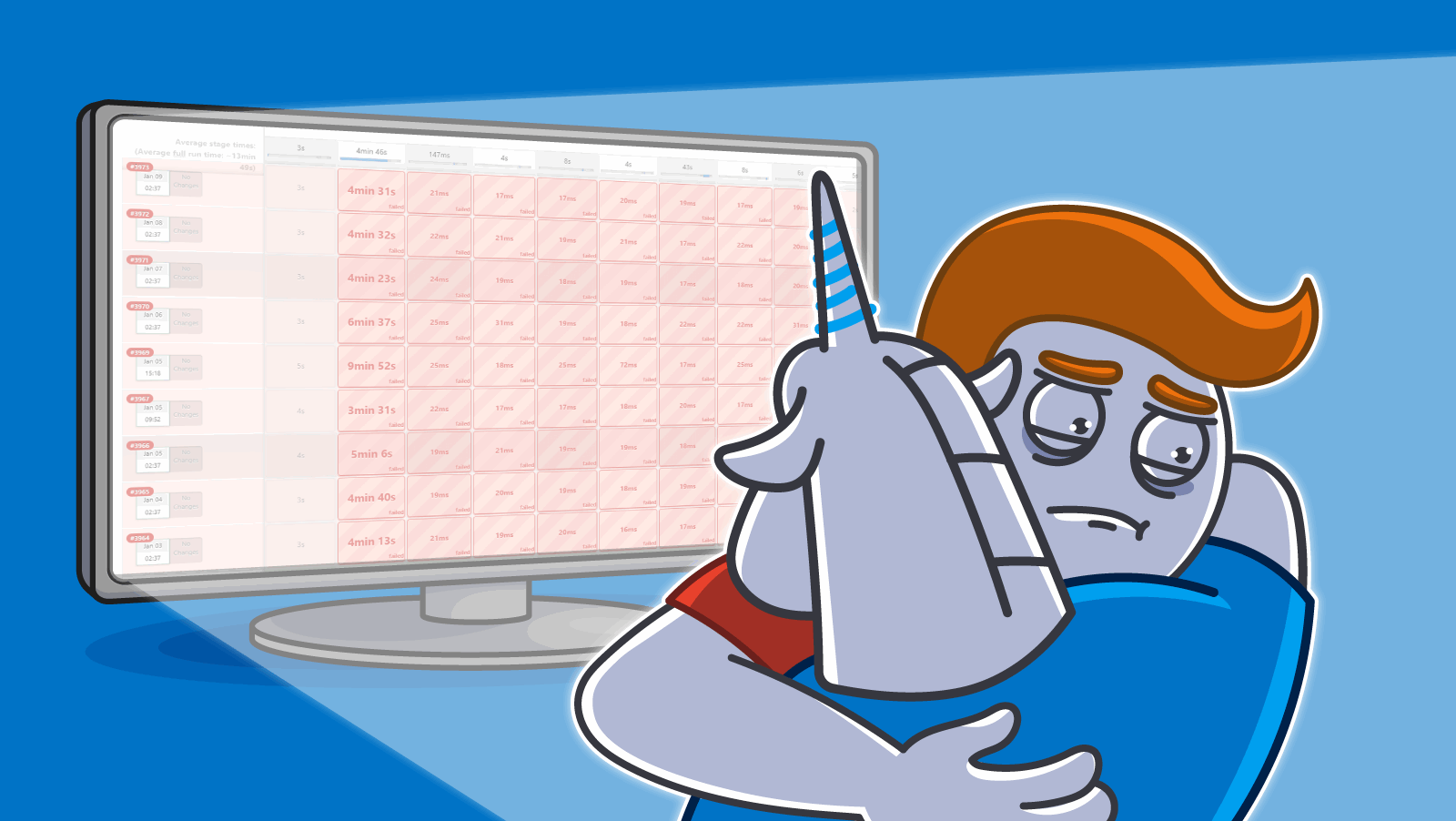
There are two reasons I chose this topic, even though it's not directly related to my job (translations).
First, I've worked alongside developers for eight years and see that development involves heavy mental load—not just in problem-solving, but in how often things break or malfunction. By the way, how much time do you spend troubleshooting (fixing errors, solving problems)? Share your thoughts in the comments! Beyond bugs, there's also non-constructive criticism.
This mental and emotional strain leads people to decompress in different ways: some watch shows, others dive into gaming, run marathons, build bunkers, or turn to unhealthy habits. So, this article covers ways to recover from criticism and stay balanced.
Second, after returning from maternity leave, I went through onboarding process again, received feedback packed with edits and adapted to new conditions through making mistakes. At times, my texts were full of red marks. Though this enhanced my skills, I still felt echoes of sadness.
These experiences made me wonder: how do developers handle this pressure? Let's start our journey by answering the question: "Why does negative feedback trigger such strong emotions?"
Interestingly enough, our brains often perceive criticism of our work as a threat. Researchers (Stone & Heen, 2020)[1] identified three triggers that activate defense mechanisms:
These triggers hit hardest online—in code comments, tickets, and chats. Without tone or body language, we add up to negativity.
A large-scale analysis (Zhang et al., 2022)[2] confirms: how we perceive criticism depends on trust in the source and perceived fairness. If you respect a colleague and see code review as help—not nitpicking—feedback is easier to accept.
Everyone reacts to negative feedback differently. Personal reactions depend on upbringing, team dynamics, and more. While these factors are beyond this article's scope, let's focus on what happens in the moment we receive criticism.
Adults mostly handle criticism with emotional restraint. The challenge is managing the internal swarm of wounded pride, resentment, and the urge to react. Even after filtering emotions, it's easy to fixate on negativity and injustice. If your mind replays the situation instead of focusing on work, try these simple but powerful techniques:
An example from the Frozen movie comes to mind—unscientific but emotionally resonant. On Elsa's coronation day, she unexpectedly reveals her magic, covers the city in ice, and is called a witch. She flees, sings "Let It Go," and builds an ice palace. What's the lesson? Accept the situation like Elsa.
Keep a feedback lesson log. Examples: "Add load testing earlier," "Add comments about non-trivial solution X." This turns pain into actionable growth. Coaches use this focus shift for growth.
Create a "win board." Our office walls are covered in badges, memes, kids' drawings, and postcards. It all reminds of different areas of life, where a person excels, as well as their achievements, travels, and networks.
Find healthy outlets for emotions. Therapy/talking may suit some; others process through movement, hobbies, or goals. It's probably healthiest to combine different ways of expressing emotions and thoughts. Anyway, you might want to delve into yourself and think about what suits your case: written notes, a confidential chat with a non-tech friend or a powerful workout, building a house, driving off-road, and modeling airplanes. So, to avoid destructive forms of emotional expression, it's helpful to honestly answer the question, "If I set aside work and emergency forms of self-help (like eating sweets or smoking), what do I like to do?"
Smoking is harmful to your health.
Don't just "endure" criticism—process it mindfully:
This pause shifts your focus from emotion to rational reflection, preventing impulsive replies.
The goal is to seek clarity, not to defend yourself. Treating feedback as food for thought might come in handy. Also use the "Hear → Respond" principle:
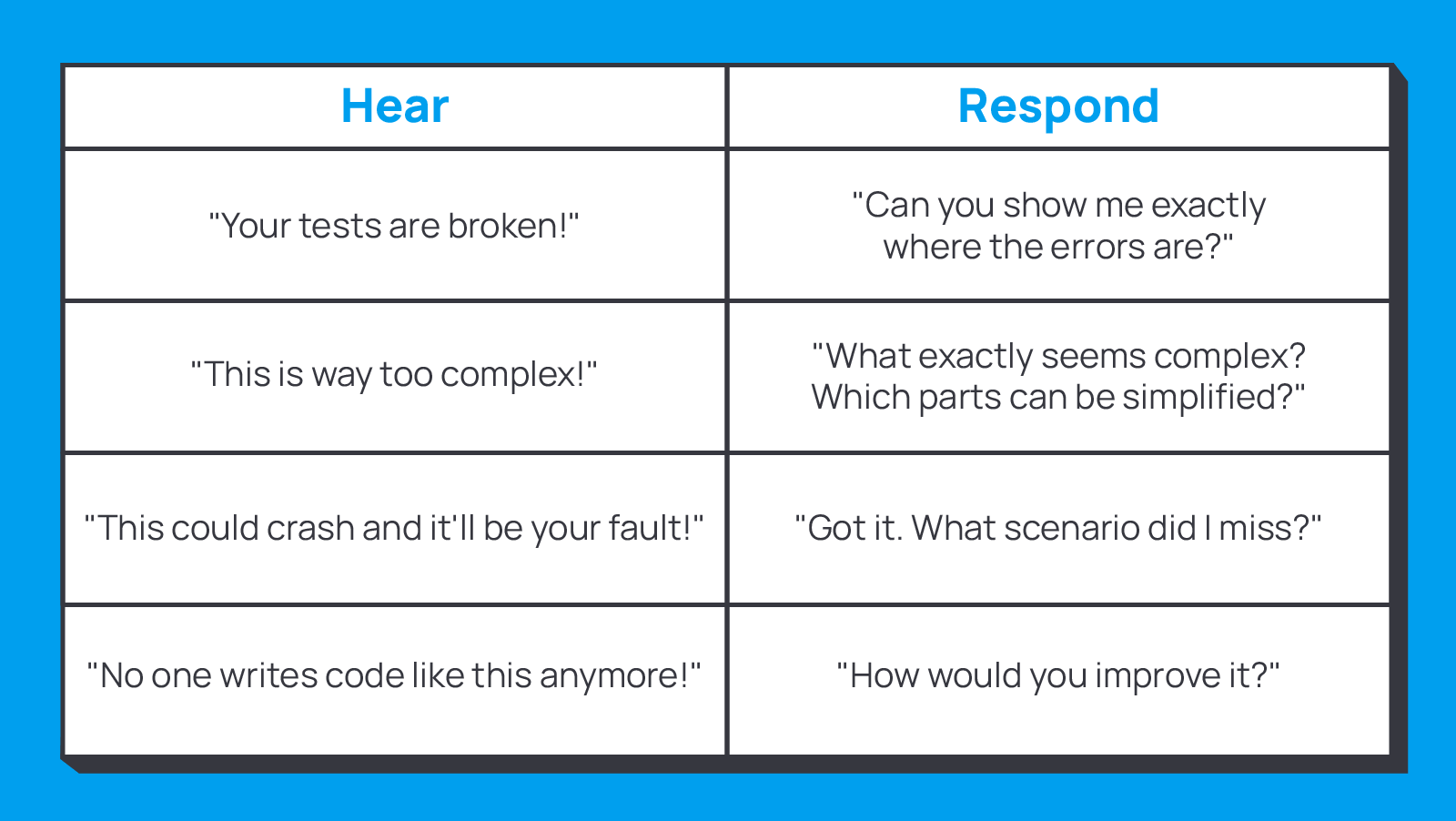
Paraphrase & clarify. A question that has bailed out more than once: "Did I get it right?" You can even ask a friend or close colleague, because when it comes to getting things done, everyone loves clarity. For example: "The main problem is the potential difficulty in supporting this solution. This is because of its complexity. Did I get it right?"
Use "I understand your... (emotion) and want to... (help/clarify)." This validates emotions (a "gentle parenting" technique). This technique shows that you accept the other person's condition, do not reject it, give the right to feel such emotions and offer a solution, and you're ready to dig deeper. The example, "I understand your scalability concerns—have you considered Option Y?"
One might ask, "Why do we need this verbal sophistication when we can respond just as bluntly?" The point is that these efforts to formulate an adequate response turn confrontation into a dialog, help extract specific, useful information hidden behind harsh words. Often, the problem is real but poorly articulated.
Filter out (separate signal from noise). At this stage, try to deal with the emotional background: extract the grains of truth and put the tares of emotion behind you.
These are the criteria you need to select the edits you want:
The key question is: "Even if poorly delivered, is there a rational nugget that could make my solution better, more reliable, or clearer?" (Duke, 2020)[3].
Linus Torvalds (the Linux creator) wrote in "Just for Fun: The Story of an Accidental Revolutionary":
"I learned not to take it personally. If criticism is technically valid, I'll consider it. If not, I'll ignore it."
As a result, filtering avoids emotional distraction and focuses energy on real issues.
Turn feedback into results. All of the above is pointless if you don't push edits to a specific result. Here are some useful points:
That's the ultimate goal: your code, skills, or process enhance based on the information you've gained.
"Proactivity" might sound like a meme to some devs ("Leave me alone—I'm already swamped!"). But we all prefer being prepared and cushion the blow where we know we're going to fall. In addition, proactivity reduces rework and late fixes. Especially since being proactive can help reduce revisions and eliminate the catch-up tasks.
Preventing errors is core to our work at PVS-Studio, as we make static analyzers that detect bugs early. The tool is designed to ensure that the criticality and damage of errors doesn't build up.
Integrating such tools is proactive—but requires care (see "How to introduce a static code analyzer in a legacy project and not to discourage the team").
Personal proactivity tips:
There are unobvious pros to this approach:
I've already mentioned that finding errors at an early stage is the main purpose of our analyzer. The real question is how the user will handle the voluminous feedback it provides. Interestingly, the tool doesn't praise the code, but only points out errors in it, which some may perceive as devaluing the work. However, words can't convey the joy of a developer who gets few warnings for their code.
Anyway, a person may react differently to a large analyzer output: some will rush to fix everything indiscriminately, while others will procrastinate. When emotions overwhelm you, try not to react impulsively.
In our company, every novice developer chooses an open-source project and checks it using our analyzer as a part of the onboarding process. This is how every new developer tests their resilience for handling a large number of warnings.
My colleague described this anxiety effect caused by multiple analyzer messages in the article "Anxious analyzer and developer hostage syndrome".
To understand real-world feedback dynamics, we ran an anonymous survey asking:
A total of 21 people participated in the survey, which isn't many but we didn't insist on participating, didn't remind, and only asked once. That is, participation was voluntary and without pressure. Check out the results of the survey at the link. Participant experience/levels are given below.
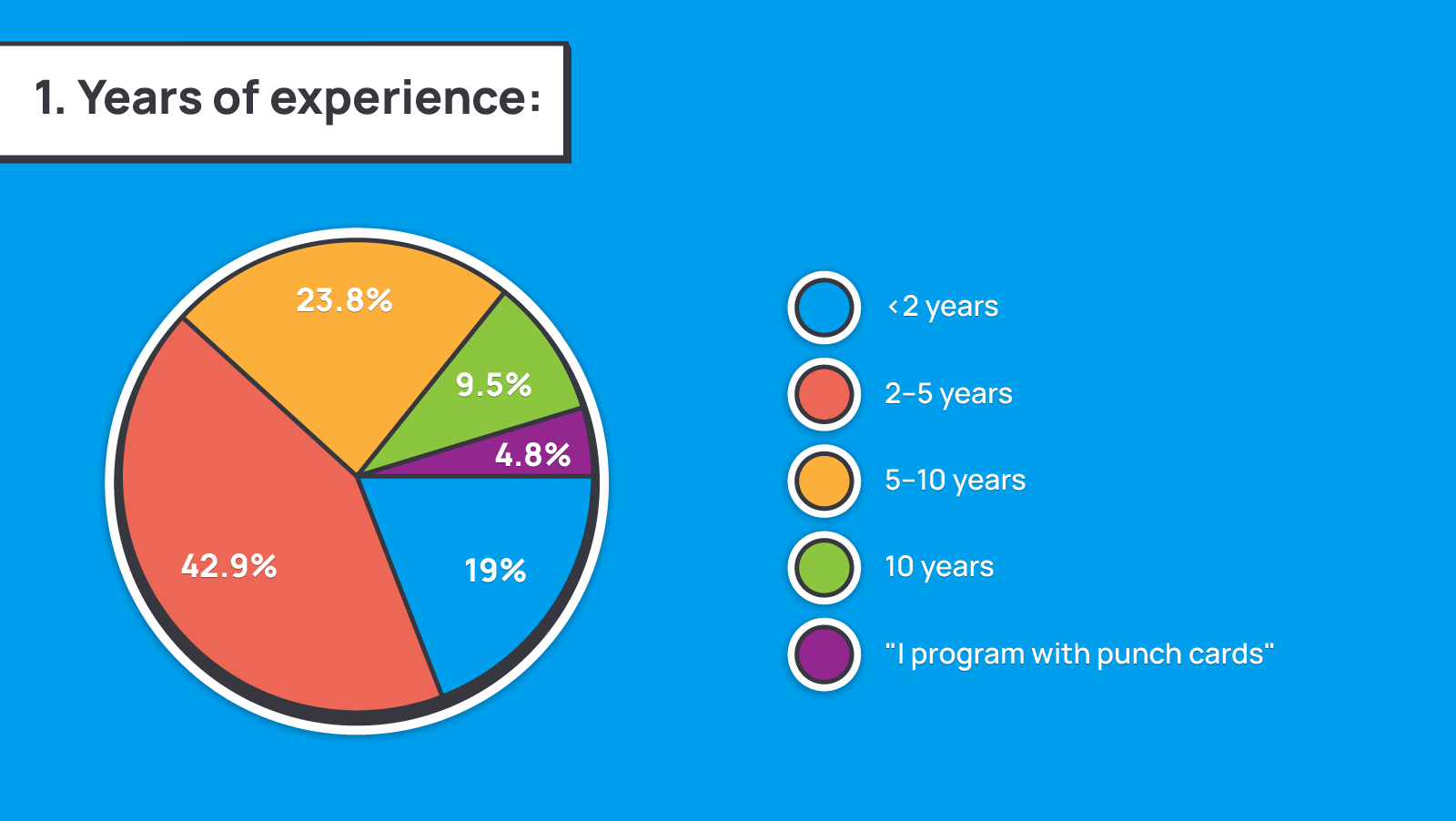
As you can see, our participants aren't novice developers.
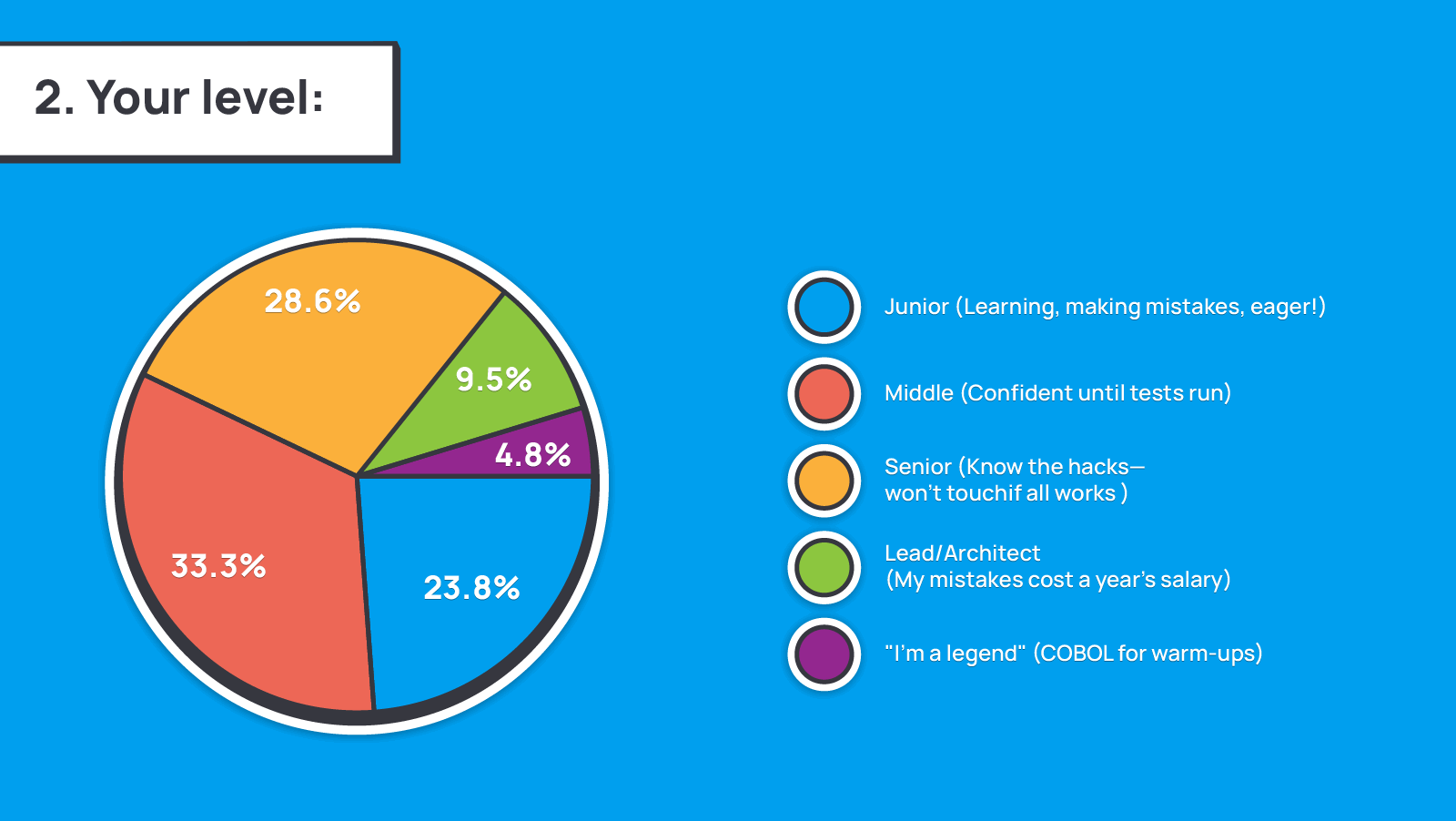
Here is the initial reaction to negative feedback:
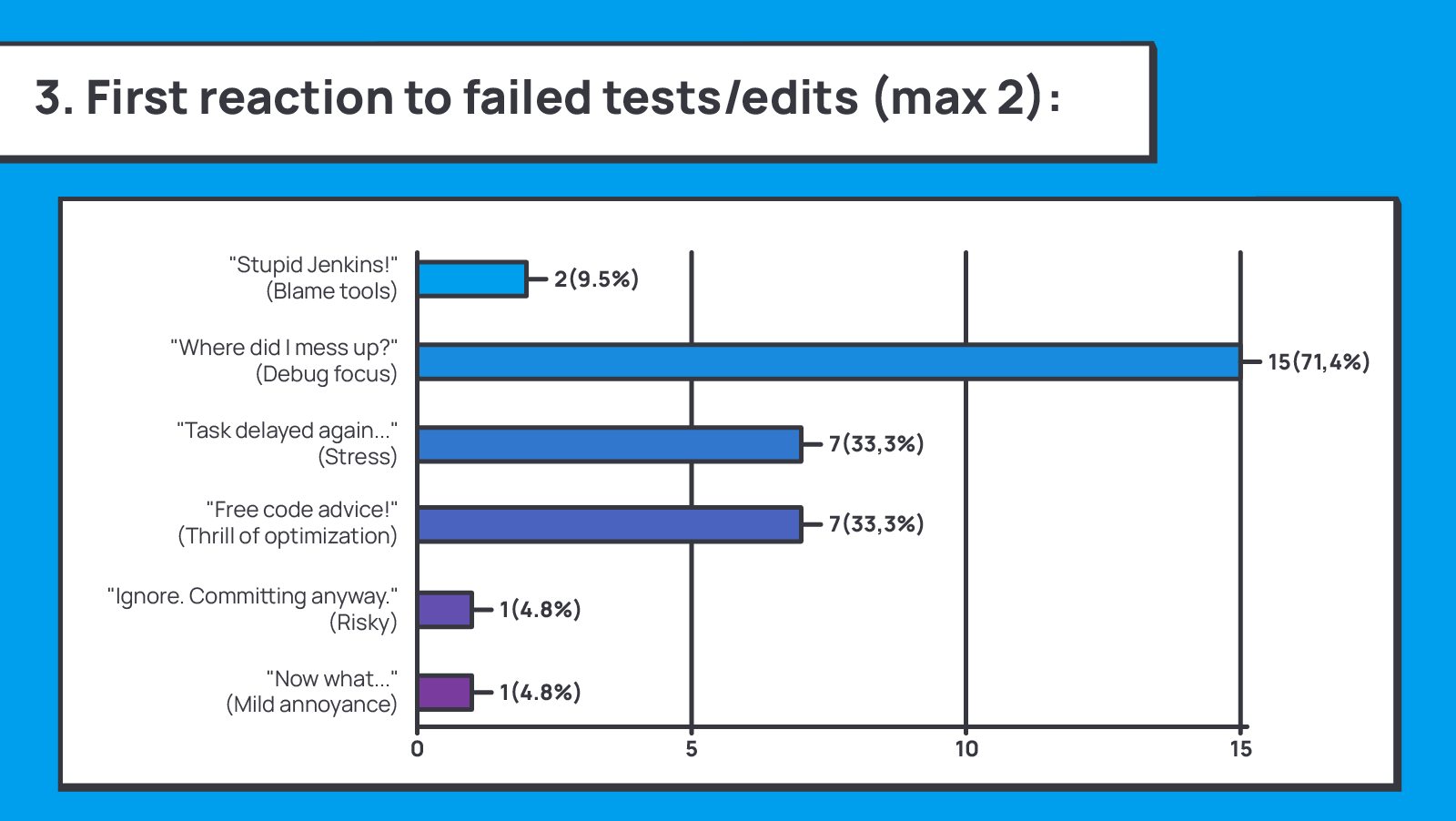
Well, the reactions are diverse. However, our devs are ready to fix any problem as soon as they learn about it.
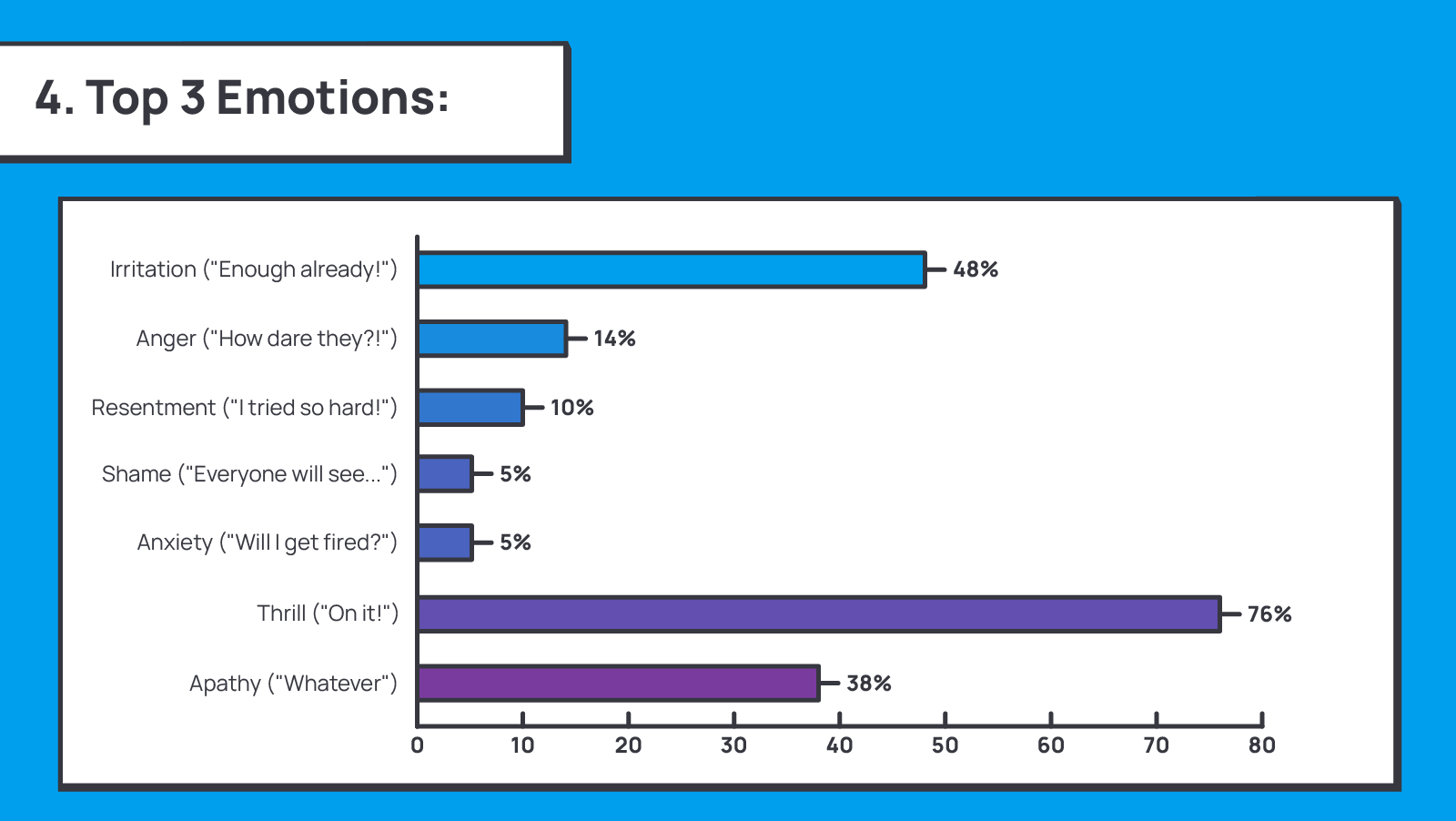
Devs want to understand issues, but irritation is common.
I suggest you look at the data on responses to criticism according to how constructive it is:
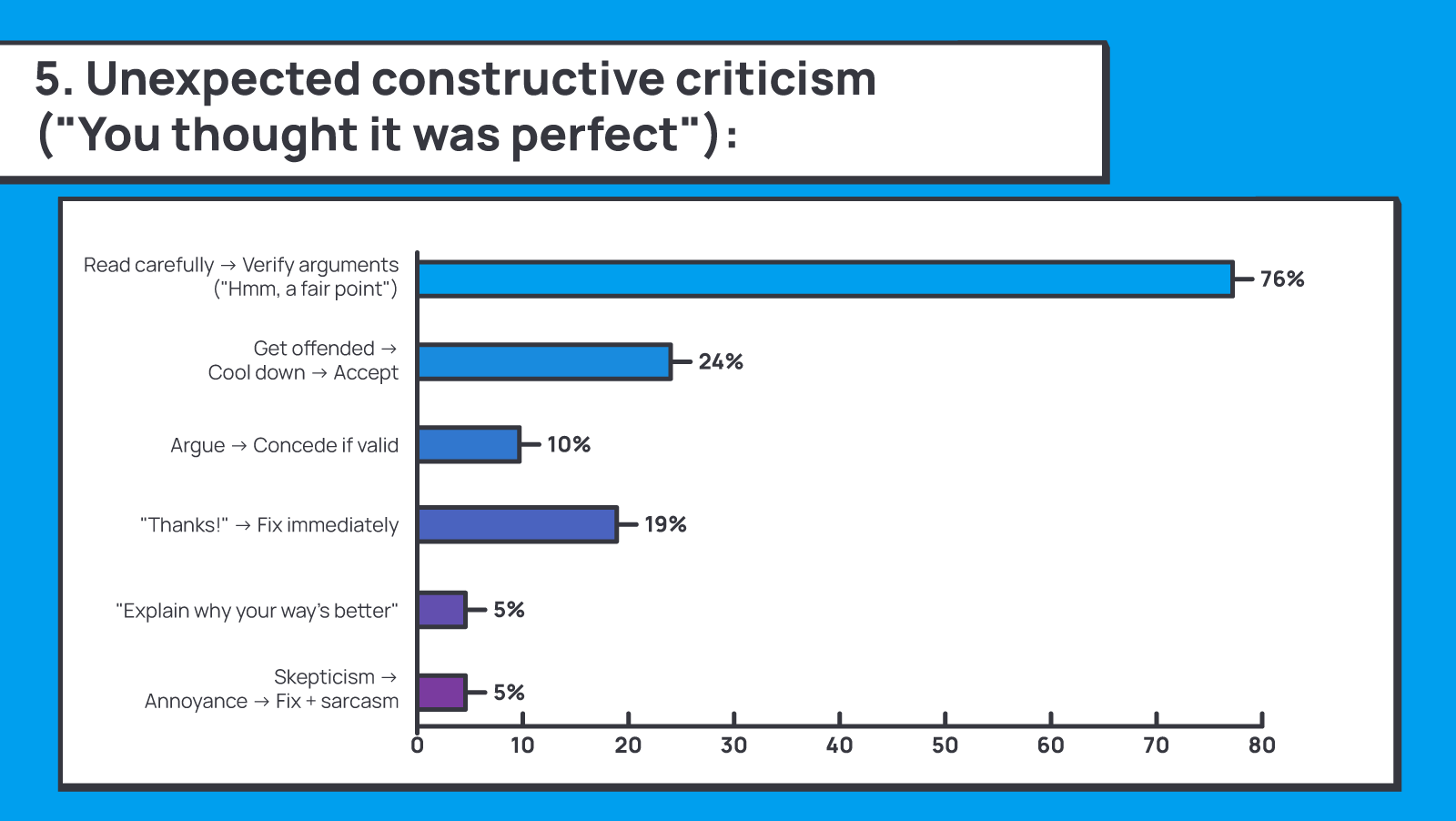
Even unexpected criticism is better received if it is constructive.
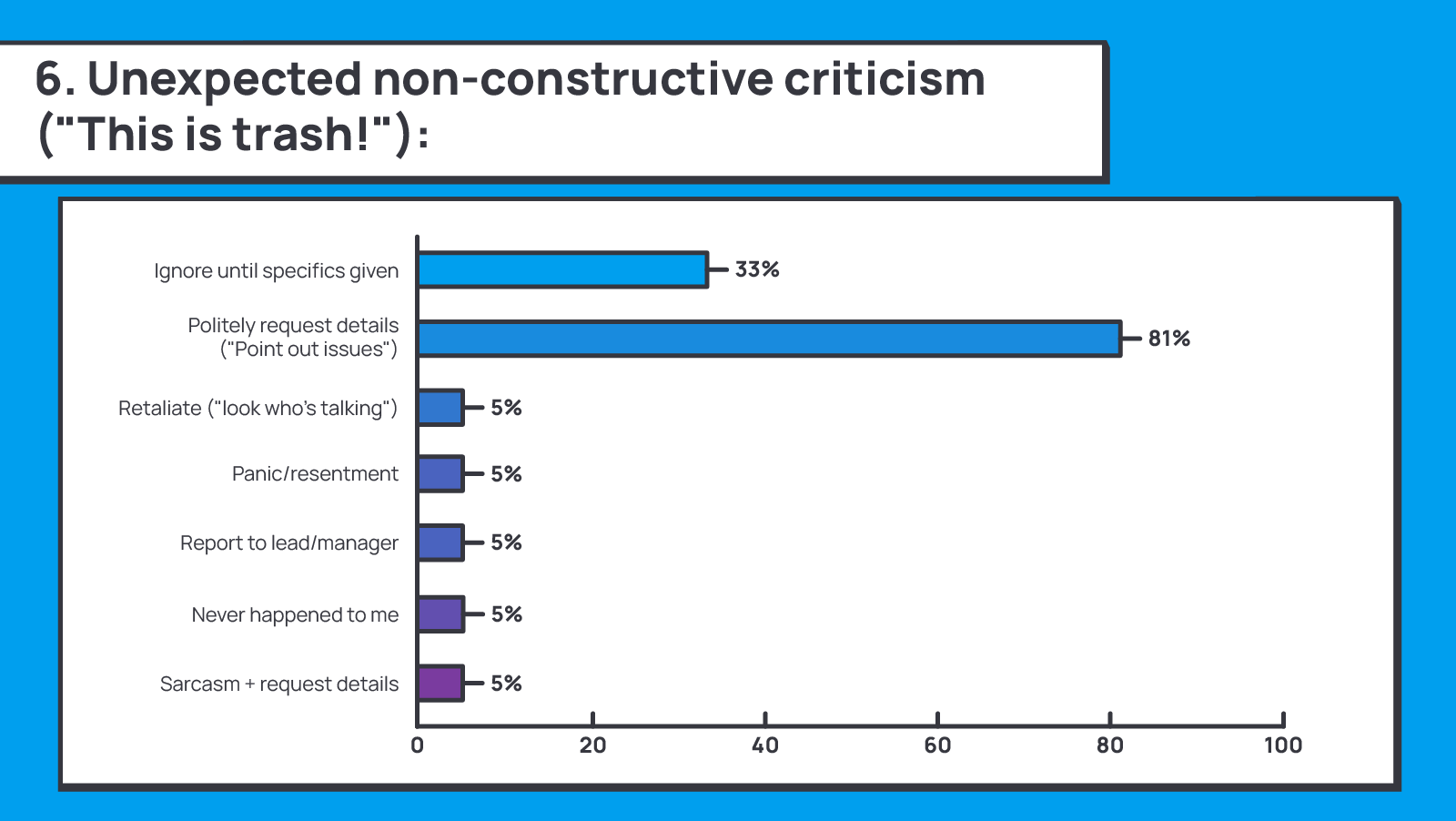
Let's move on to coping habits in extreme cases:
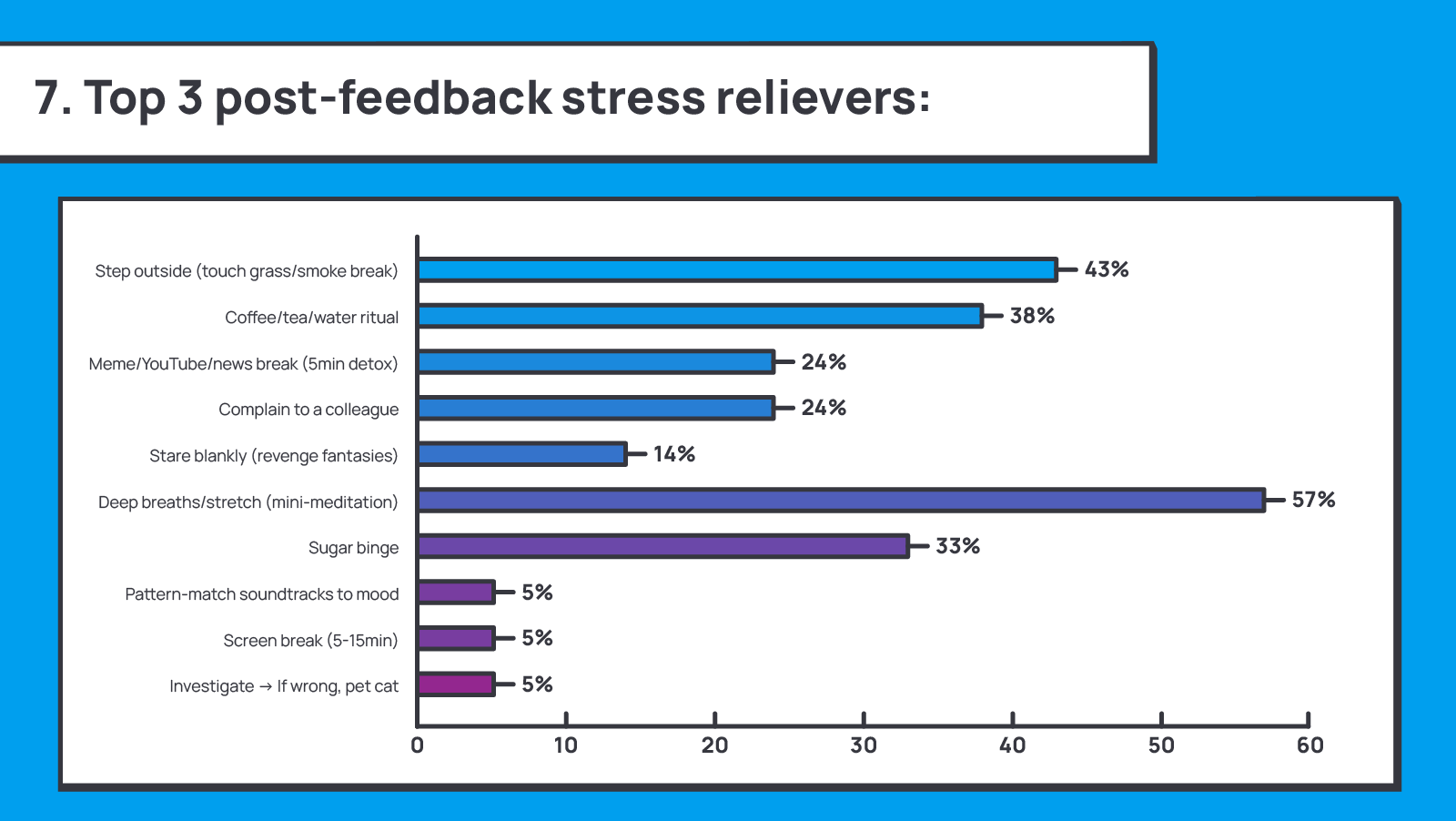
So, do the results go along with your top 3?
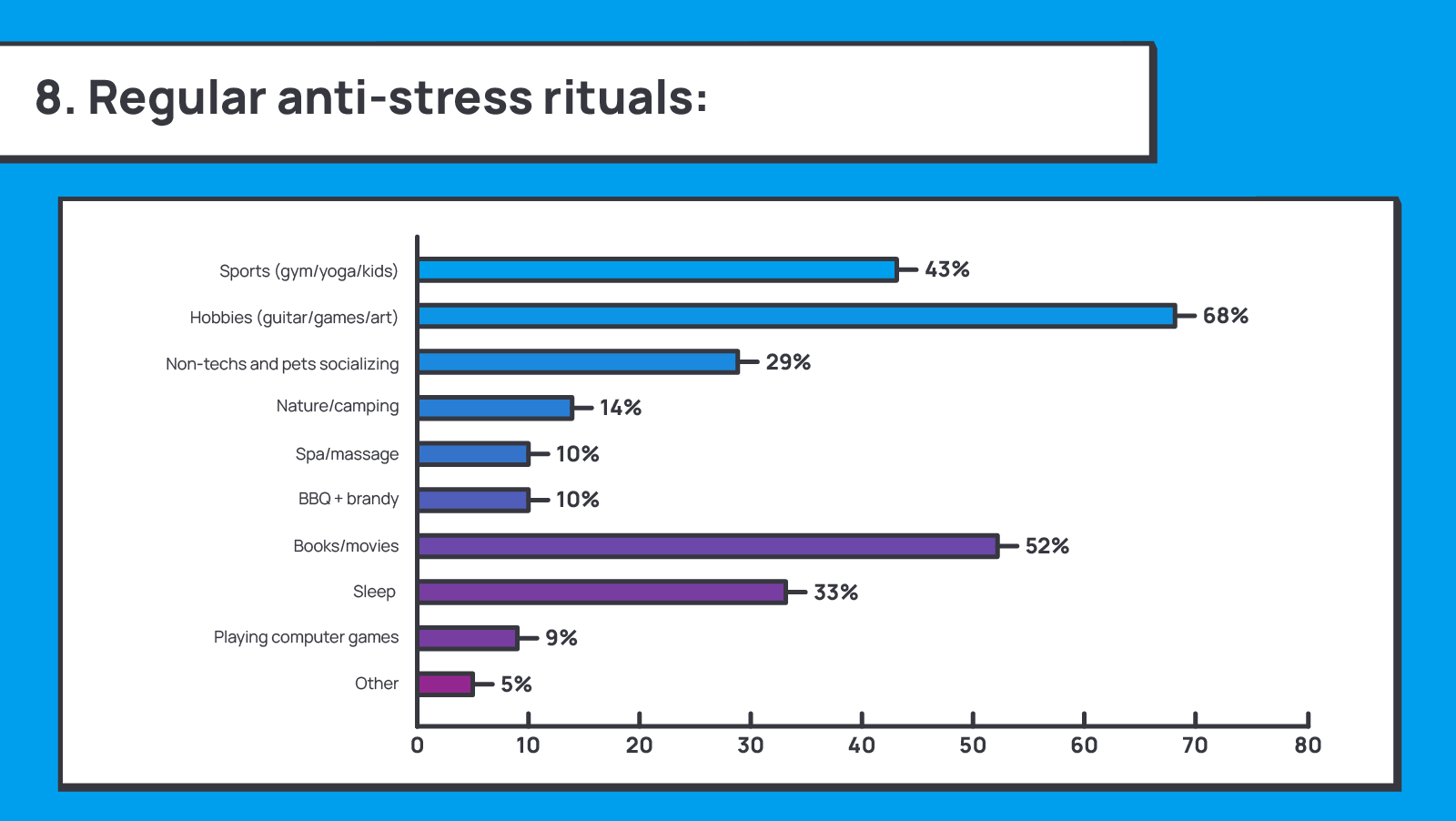
Here are the survey results on self-analysis and retrospectives:
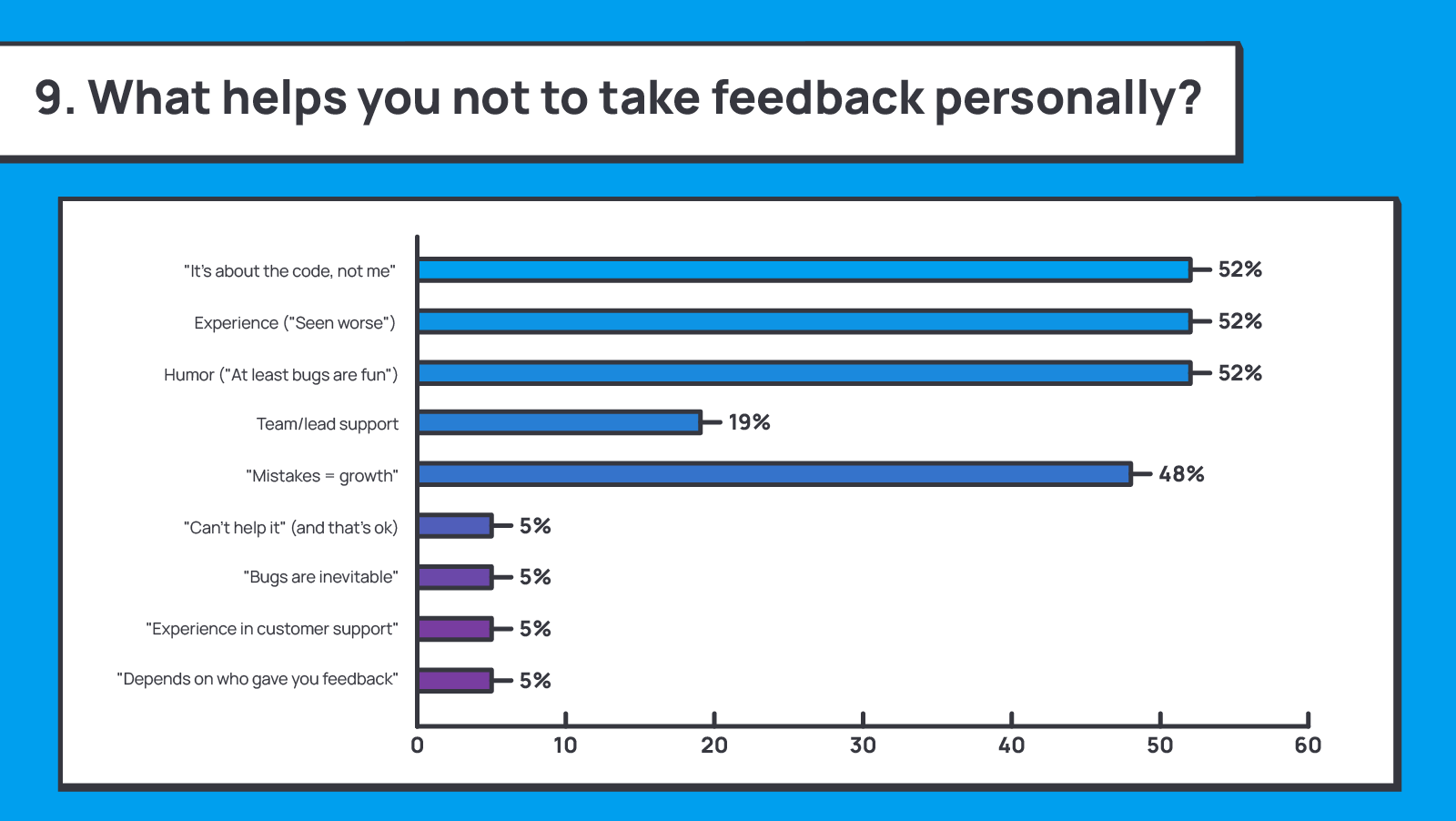
These survival strategies might appeal to you too.
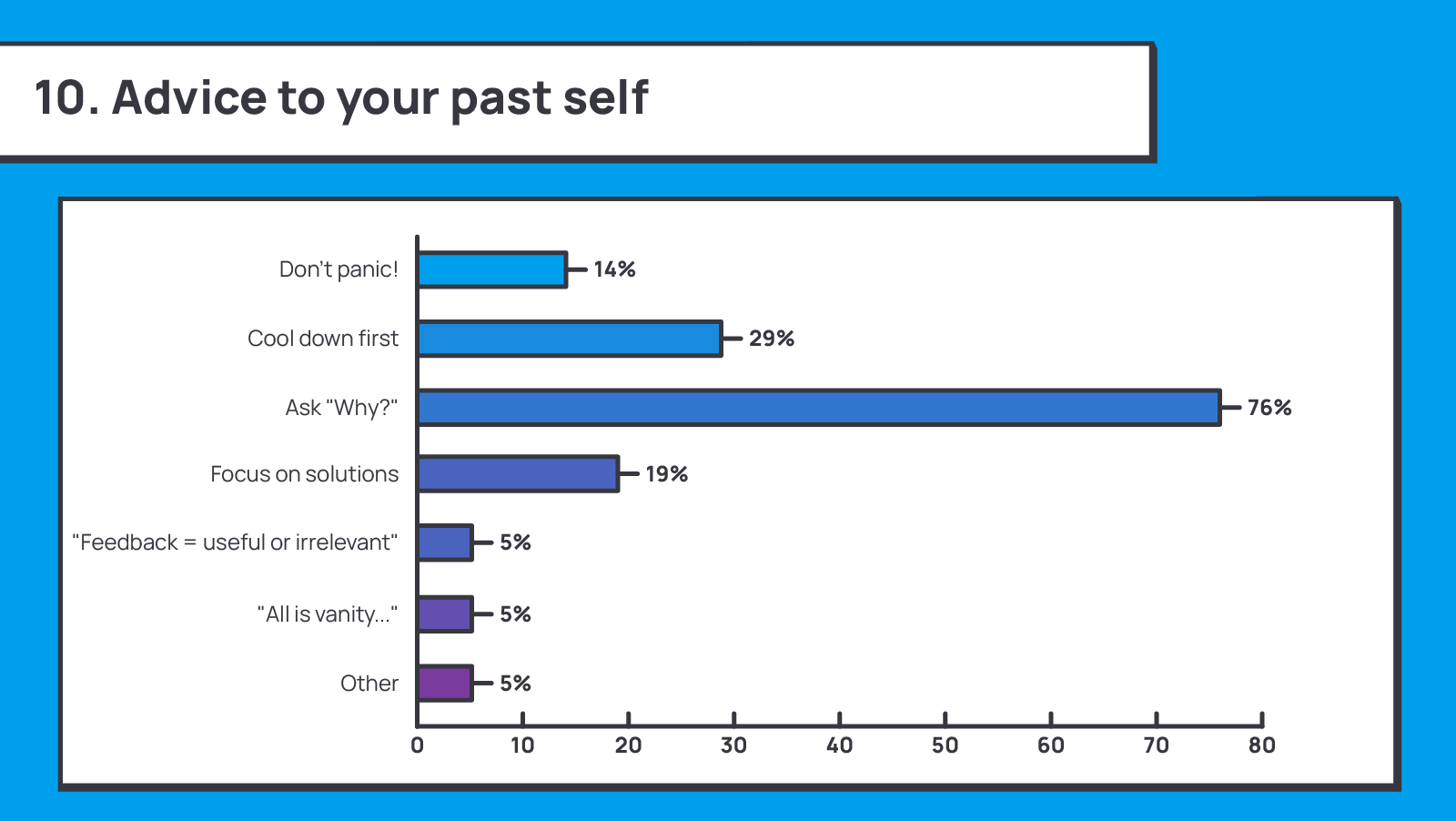
Would you go along with these results? Don't hesitate to share your opinion in comments.
When criticism strikes, this cheat sheet will help you navigate quickly:
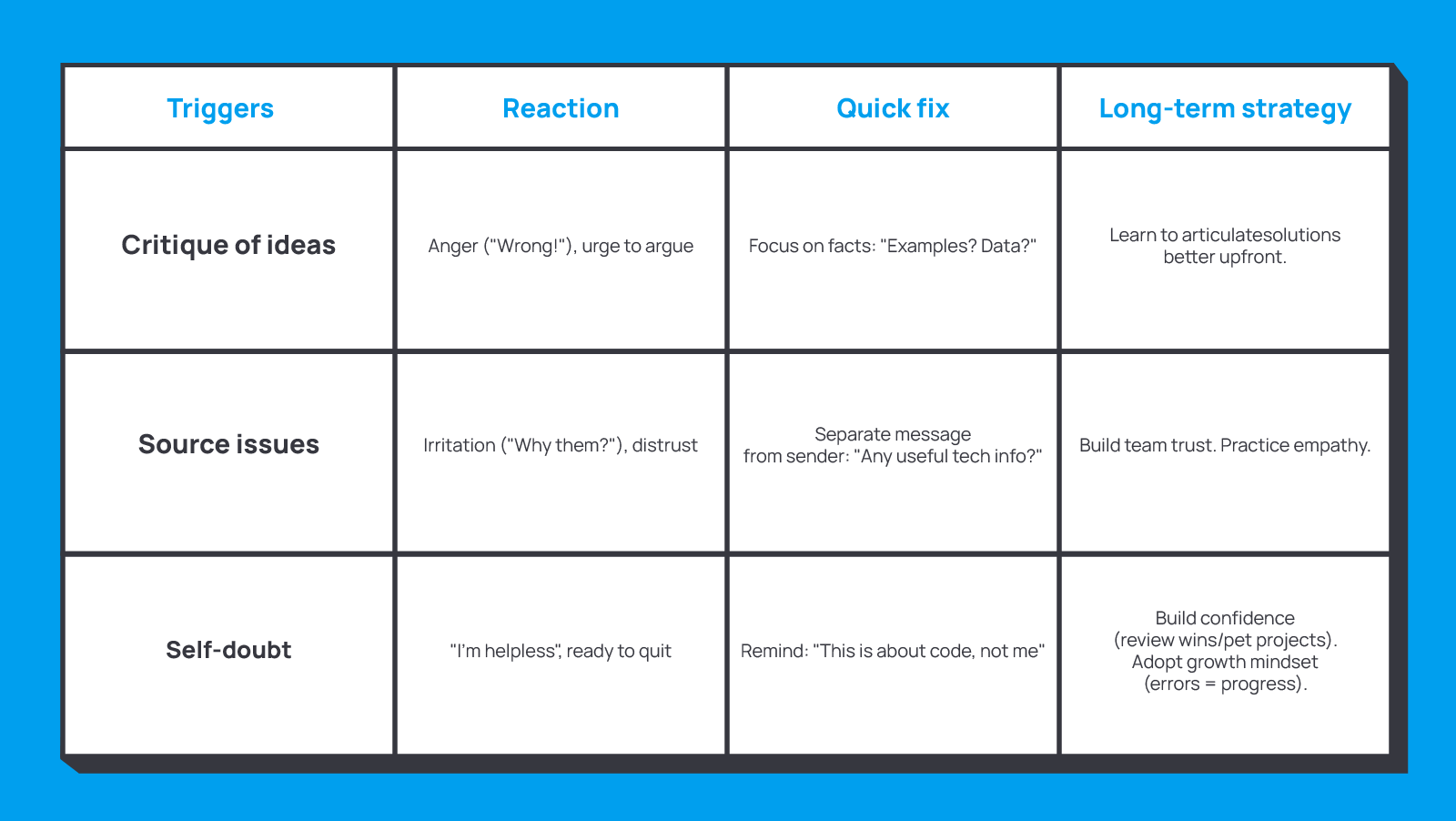
Handling negative feedback constructively is as critical as leveraging coding skills. It's not about submission—it's about efficiently processing information to constantly improve your solutions and expertise.
Next time you get harsh feedback, take a deep breath and ask yourself: "What opportunity for improvement did this just reveal?". Good luck!
References (2020+):
[1]: Stone, D., & Heen, S. (2020). Stone, D., & Heen, S. (2020). Thanks for the Feedback, Updated Edition. — Feedback psychology classic. Triggers and Strategies.
[2]: Zhang, Y., Wang, Y., & Kim, T. Y. (2022). Receiving negative feedback: A meta-analytic review... Journal of Applied Psychology. — Comprehensive analysis of negative feedback's impact (trust, fairness).
[3]: Duke, A. (2020). How to Decide. — Treating feedback as "extra data" for better decisions.
[4]: Anseel, F., Beatty, A. S., Shen, W., Lievens, F., & Sackett, P. R. (2021). How Are We Doing After 30 Years?... Journal of Management. — Proactive feedback-seeking boosts growth (meta-analysis).
0